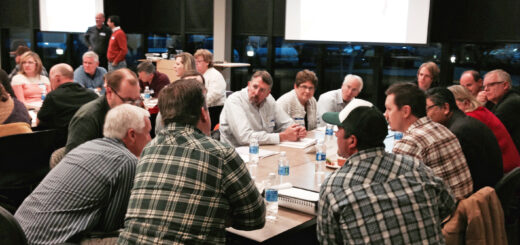Restoring NEH funding would strengthen NCW communities
The impact of the recent suspension of funding to the National Endowment for the Humanities and, by extension, state organizations like Humanities Washington by the Department of Government Efficiency will be felt in communities across North Central Washington as well as the rest of the state. It would be a tragedy if that funding went away and the work of Humanities Washington ended, but that seems likely.
My hope is that there will be a bipartisan outcry to restore the NEH funding.
Humanities Washington has developed robust programs that create opportunities for small to large communities to engage with a wide range of ideas and topics. In the past four or five years, the organization has partnered with numerous local organizations to provide dozens of programs on a wide variety of topics in North Central Washington.
The programs create meaningful opportunities for people to gather, learn and connect. In these fractured political times, I think the programs of Humanities Washington continue so that we might find ways to bridge the divides that exist.
“We just want people to learn and expand their knowledge of the world and connect with each other,” explained Humanities Washington Executive Director Julie Ziegler. “And so in this way, we organizations, no matter how tiny communities, no matter how tiny they can bring top notch experts to their communities for free (or minimal cost),” she added.
The Speaker’s Bureau is perhaps the organization’s best known program. They vet speakers who offer talks on a wide range of topics. Current offerings include “Big Apples, Big Business: How Washington Became the Apple State;” “Fish Wars: Tribal rights and resilience in the Pacific Northwest,” a program featuring Dr. Kestrel Smith of Wenatchee Valley College’s Omak campus; “That Ribbon of Highway: Woody Guthrie in the Pacific Northwest,” “Weird, wonderful and worrisome objects in Washington state’s museums,” just to name a few.
For nonprofits in small rural communities with minimal resources, Humanities Washington offers help with travel expenses to make sure not just folks in big cities with large nonprofits can participate, said Ziegler, a Yakima native who has led the organization for 15 years.
The programs Humanities Washington offers span the political spectrum.
Besides the Speaker’s Bureau, the nonprofit hosts the state Poet Laureate, who this year is Wenatchee Valley College English professor Derek Sheffield. They also have created the Center for Washington Cultural Traditions, which offers apprenticeships, and grants and sponsorships.
Another community-centered program is called Prime Time Family Reading Program, which is a six-week program for struggling readers. “We work with schools, reading specialists, teachers, to identify kids that are struggling in the third grade, where you know it really is a critical intervention point for reading and those folks invite those those teachers invite families to bring their kiddos to the libraries for a six week, weekly evening reading and discussion program, according to Ziegler.
That program, she added, “really has shown great results in getting these kids that are not really responding to other interventions in the school setting.” Humanities Washington partners with numerous school districts, including Wenatchee, in providing this reading program.
Rural communities are at a significant disadvantage compared to big cities when it comes to cultural opportunities. What a benefit to have a nonprofit organization supported in part by the federal government to level the playing field for small communities.
Ziegler, who is an enthusiastic advocate for bringing people together and building a greater sense of community, said it was shocking to receive the letter from DOGE on National Endowment for the Humanities demanding the return of funds that had been previously applied for and approved.
“We know that it’s rural communities that are going to suffer the most from this because there are additional philanthropic resources,” she told me.
Fostering stronger communities is clearly seen as extraneous and unimportant to some folks. But in my mind, the organizations that make the biggest difference are doing exactly that kind of work. Rather than being a nation of individuals, we are far stronger as a nation of communities.
I am in favor of rooting out waste, fraud and abuse in government spending, but the programs of the NEH and Humanities Washington, are essential.


